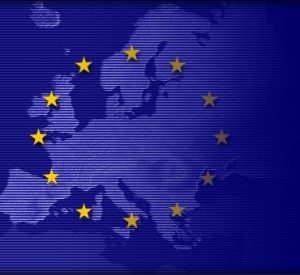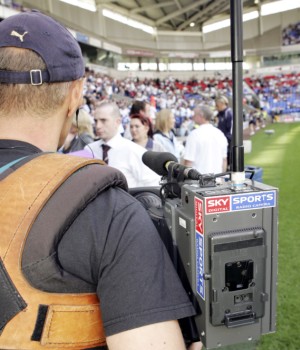|
Keep out of Our Game
Last Updated : 30-Oct-2005 byIn a nutshell, the position is this. For some time, the Commission has been unhappy that the rights are sold as a single package, to a single broadcaster. In response to this, the last TV deal was sold as a series of smaller packages – but since they all ended up in the hands of B Sky B, the effect of the change was ultimately negligible. So, with legal action threatened, the Commission is now insisting that, come the next TV deal, a proportion of televised games should be shown by a second broadcaster. Given that Sky have always paid a premium for exclusivity, this change is likely to reduce the overall worth of the rights.
You may have some sympathy with this. Sky currently pay upwards of 2 million pounds for a live Premier League match – more than twenty times what they paid for the privilege of screening Burnley v Hull on Friday evening from the division below. It is a ridiculous amount, and there is a fair argument that a healthy reduction in this windfall will do much to reconnect the game with the real world.
But it is not so simple. Firstly, whilst the richest of the Premier League clubs can cope with the reduction in income, there’s no reason to suggest those clubs who run on a much tighter budget – I’m thinking Bolton, West Brom, Charlton and the like – will be able to do so. Secondly, should this happen at Premier League level, it will probably affect the next Football League deal, and we all know what happened the last time TV income plummeted.
Nor is this the limit of what Europe would like to see change in this area. Along with the communications watchdog OFCOM, they are rather keen on showing yet more live games. Apparently, the saturation point for coverage of live football has not yet been reached. And in the long term, the Commission is suspicious of the entire concept of collective rights: it would prefer to see clubs negotiate separate deals independently.
These ambitions demonstrate amply a complete failure to understand the game. I can assure the commission, OFCOM, the government and anyone else who claims an interest that there a plenty of live games on TV. I can confirm that those fans who go to games are getting heartily sick of having to travel late on a Saturday, Sunday or Monday evening to the other end of the nation at the behest of television schedules. I am one hundred percent confident that your average armchair fan is really not especially bothered whether Wigan versus Fulham (this Saturday) is available on pay-per-view or not.
|
None of which seems to bother our friends in their ivory towers. You see, they are quite happy to let the market do its worst: this whole crusade is being waged under Competition Law. They want to see the barriers removed and trade to become free. They want football clubs to compete like supermarkets or banks, along ordinary market principles.
They are wrong. Football may be a business of sorts, but it is fundamentally different from the average. Allow competition of the pitch to get out of hand, and you will, ironically, destroy competition on the pitch – the most fundamental aspect of the game.
There are a great many examples over the past ten to fifteen years of football being forced into line with the ordinary laws governing businesses. The most famous is the Bosman ruling, which is also the most reasonable. It was never fair that a footballer be retained by a club against his wishes on the strength of a contract which had ceased to exist - even if the detail of the rules which responded to the ruling were misguided and heavy handed, and militated against small clubs.
But ever since, the game has been threatened by the erroneous belief that normal rules should apply. It is time that the law accepted that, by its very nature, sport requires dispensation. It needs to ensure that the playing field remains somewhere closer to equal, and that the future of the game relies on strength in depth.
The European Commission, OFTEL and anyone else who might meddle, could do with taking stock. They could do with listening to the multitude of voices they never quite hear: those supporters who love the game, who sustain the game, and who will be most affected by any changes.
If anything, then take steps to make football more equal. Redistribute more money. Or take action against obscene ticket prices. But don’t make decrees about things you don’t really understand. Please; it really isn’t your place.


